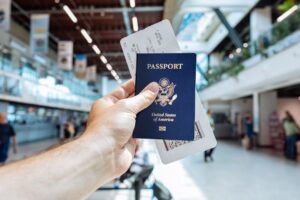Applying for a Brazilian visa can feel overwhelming, especially with complex legal requirements and the fear of making costly mistakes. If you’re wondering how to apply for a Brazilian visa successfully, this expert guide will walk you through each step with clarity and confidence. By understanding the process from a legal perspective and learning insider tips, you can avoid common pitfalls and ensure your application moves smoothly.
Many applicants struggle with unclear document requirements, confusing terminology, and unexpected hurdles during processing. This guide addresses those challenges head-on, offering practical advice backed by certified legal expertise from the Outvisa team. Whether you’re applying for the first time or navigating a complex case, you’ll find the support you need here.
Understanding the Brazilian Visa Types and Eligibility
Before starting your application, it is essential to know which visa type fits your purpose of travel. Brazil offers various visa categories, each with specific eligibility criteria that can affect your application outcome.
- Tourist Visa: For leisure travel, visiting family, or short stays.
- Business Visa: For attending meetings, conferences, or commercial activities.
- Work Visa: Requires employer sponsorship and specific labor authorization.
- Student Visa: For educational programs recognized by Brazilian authorities.
- Family Reunion Visa: For joining relatives legally residing in Brazil.
Eligibility depends on your nationality, travel purpose, and legal requirements. Understanding these distinctions early helps tailor your application and avoid unnecessary delays or denials.
Step-by-Step Application Process with Expert Tips
Applying for a Brazilian visa involves several precise steps, each requiring careful attention to detail. Below is a structured approach to guide you:
- Step 1: Determine the Correct Visa Category based on your travel intent and eligibility.
- Step 2: Gather Required Documents such as valid passport, proof of financial means, invitation letters, and any additional paperwork specific to your visa type.
- Step 3: Complete the Online Application Form on the official Brazilian consular website, ensuring all information matches your documents.
- Step 4: Schedule and Attend the Visa Interview if required by your consulate, preparing to answer questions about your travel plans.
- Step 5: Submit Biometrics and Pay Applicable Fees as per consulate instructions.
- Step 6: Track Your Application Status through official channels and respond promptly to any additional requests.
Expert Tip: Double-check every document for authenticity and consistency. Small errors or missing paperwork are the most common reasons for delays or refusals.
Common Challenges and How to Overcome Them
Many applicants face obstacles that can complicate or prolong their visa process. Understanding these challenges helps you prepare and resolve issues proactively.
- Uncertainty About Document Authentication: Some documents require official legalization or translation. Consult with specialists to ensure compliance.
- Complex Family or Dual Citizenship Situations: Legal nuances may affect eligibility; expert legal advice is crucial to navigate these cases.
- Misinterpretation of Legal Terminology: Bureaucratic language can be confusing; rely on clear explanations and professional guidance.
- Unexpected Processing Obstacles: Be aware that consulates may request additional information or clarification at any stage.
Outvisa’s certified lawyers with over 10 years of experience in the Brazilian judiciary system can assist in overcoming these hurdles, ensuring your application meets all legal standards and is properly documented.
Documentation and Legal Requirements Explained Clearly
One of the biggest concerns in the visa application process is ensuring that all legal and documentation requirements are met accurately.
- Passport Validity: Your passport must be valid for the entire duration of your intended stay.
- Proof of Financial Means: Documents demonstrating your ability to support yourself during your stay.
- Invitation Letters or Sponsorship Proof: When applicable, these must meet specific consular standards.
- Document Authentication: Certain documents require apostilles or consular legalization, plus certified translation if not in Portuguese.
- Additional Consular Requirements: Health insurance, police clearance, or other documents depending on visa type.
Consult official sources like the Brazilian Ministry of Foreign Affairs (Itamaraty) to verify current documentation standards.
Tips and Checklist for a Successful Brazilian Visa Application
- Verify your visa type and eligibility before starting the application.
- Prepare all documents carefully, ensuring authenticity and proper format.
- Use certified translations and legal document authentication when required.
- Complete the online application accurately and review before submission.
- Prepare for any interviews by reviewing your travel plans and documents.
- Stay in contact with the consulate and respond promptly to requests.
- Consider professional assistance from Outvisa for complex cases or legal clarifications.
Frequently Asked Questions
What is the best visa type to apply for if I plan to study in Brazil?
The Student Visa is appropriate for educational programs recognized by Brazilian authorities. It requires proof of enrollment and may involve additional documentation such as financial means and health insurance.
Can I apply for a Brazilian visa if I have dual citizenship?
Dual citizenship can affect your visa eligibility and documentation requirements. It is advisable to seek legal guidance to understand how your specific situation impacts the application process.
How long does the Brazilian visa application process usually take?
Processing times vary depending on the consulate and visa type. It is important to apply well in advance and maintain communication with the consulate for updates.
Are translations required for all documents submitted?
Documents not in Portuguese generally require certified translations. Additionally, some documents may need authentication or legalization depending on consular demands.
What should I do if my visa application is denied?
If your application is denied, professional legal advice can help identify reasons and guide you through appeal procedures or reapplication strategies. Outvisa offers expert consultation to assist in these cases.
Conclusion
Applying for a Brazilian visa involves navigating detailed legal and bureaucratic requirements, but with the right knowledge and expert support, you can avoid common pitfalls and increase your chances of success. Understanding visa types, following a clear step-by-step process, addressing challenges proactively, and ensuring all documentation is properly prepared are key to a smooth application.
Reach out to us for personalized consultation based on your specific requirements.







